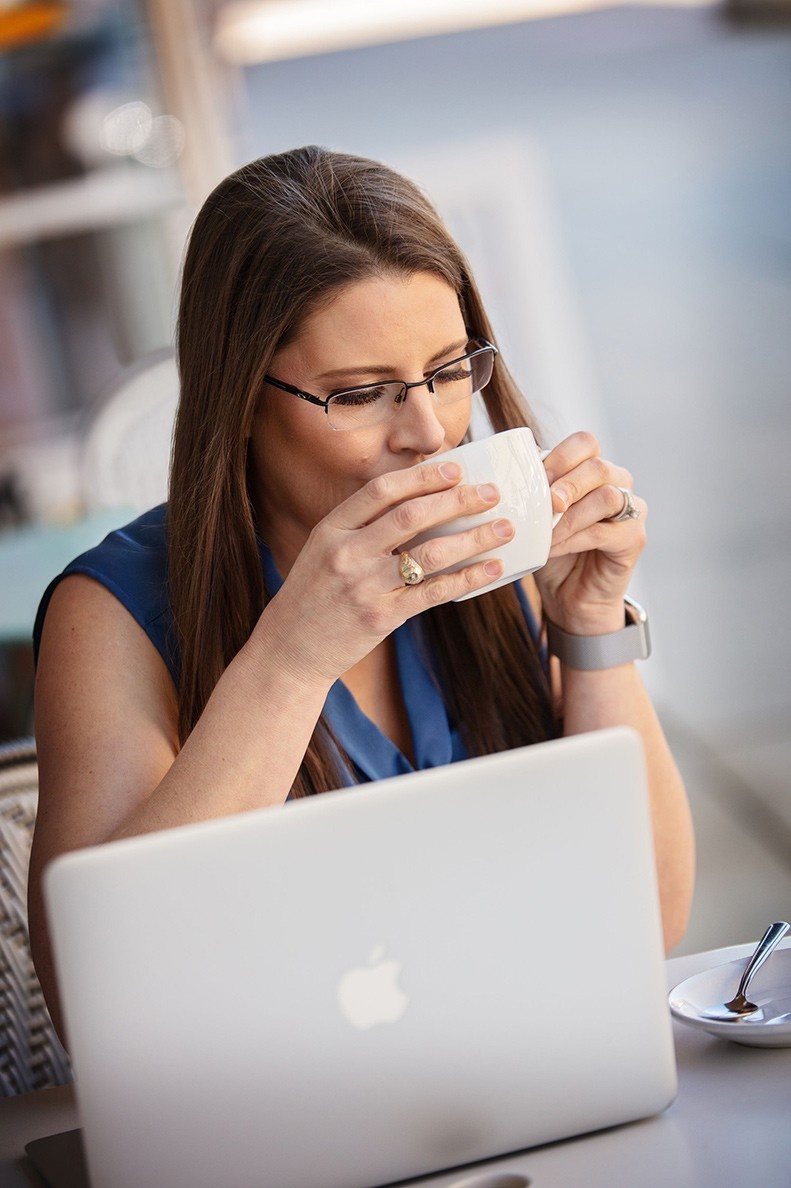MEET CAROLYN
HELP FOR OVERACHIEVERS WHO WANT TO FEEL IN CONTROL OF THEIR DRINKING.

I started out as your typical college binge-drinker. The cheapest 12 pack you’ve got, please. Craft brews need not apply.
Then, in my 20s, I entered my beer snob phase. Not local? I’ll pass. Bud Light? Sounds tacky. Unless someone else is buying the pitcher. Then I’m all in.
Then came the wine. And I was in love. I felt so classy. So sophisticated.
Until wine was no longer a “special occasion” and more of an “I’m gonna pop into the corner store and grab a box of wine because I’m not sure how much I have left at home… and the thought of running out sounds stressful.”
AM I AN ALCOHOLIC?
I remember sitting on my good friend’s back patio one day and having this same conversation with her. Does our drinking qualify as an alcoholic?
We googled. It didn’t. *exhale of relief*
Still, it put a nagging thought in my mind that stayed with me for years.
IF I’M NOT AN ALCOHOLIC, WHY CAN’T I JUST TAKE IT OR LEAVE IT?
More like “why can’t I leave it?” Taking it was never the issue.
I had enough discipline and self-control to meal prep, workout regularly, and run a small business.
But when it came to the self-imposed rules around drinking – only on the weekends, only at restaurants, just one glass tonight, a water in between every drink – my discipline and self-control were practically non-existent.
- Was I sh*tfaced every night? No.
- Was I showing up to work hungover? No.
- Was I living my best life with the motivation and energy to take action on all the big dreams I had? Not.Even.Close.
HOW TO QUIT DRINKING?

Eventually, I decided enough was enough. I committed to taking 30 days off from booze.
Within the first week, I was clocking the exceptions where I’d obviously break the fast, because you can’t not drink at a wedding/crawfish boil/[insert social event where drinks flow freely], right?
Cue the Tik Tok reel of multiple years spent stuck in a cycle of taking “breaks,” making exceptions, and feeling like an utter failure at taking care of my own health.
It culminated in the decision to start paying for help. I joined various online courses to stop drinking altogether.
Over the course of an entire year, I would successfully complete courses only to go right back to where I started within a few weeks or months. Until I was alone in my bathroom on Christmas, in the middle of the night, throwing up red wine.
I do credit the final course I joined that year with teaching me the importance of being an informed decision-maker when it came to alcohol. Rather than listen to what the culture was telling me (sobriety is boring, alcohol is sophisticated and relaxing and fun), I started exploring more of the physiology of alcohol and how interacts with our brains and bodies.
Then, one day, driving past my regular corner store, I had a thought that changed my relationship with alcohol completely.
I was working as a mental health therapist and using a technique called Brainspotting. And I wondered. If brainspotting can help a person with severe OCD turn away from their compulsion by understanding the neuroscience behind OCD, would the same thing work with alcohol? I tried it. It worked. So I started trying it with clients. It worked.
HOW DOES BRAINSPOTTING HELP WITH OVER-DRINKING?
As I started to coach other gray area drinkers using brainspotting, I developed a 3 pillar framework that combines four brainspotting setups along with education and daily practice to help rewire the way your brain responds to the idea of pouring a drink.
If you’ve ever thought….
- It’s like when I pour another glass, I know I’ll regret it in the morning but I do it anyway!
- I’m afraid I’ll be doomed to a lame life of feeling stressed, bored, or worse, excluded from the fun!
- I decide I’m going to be in control when the night is just starting, but then something switches in my brain and I just keep going despite my best intentions!
Then brainspotting can help you:
- Rewire neural pathways to access the delayed consequences of pouring just one more glass
- Process what’s truly behind your fears about living an alcohol-free life
- Strengthen the neural pathways for self-control by providing your deep survival brain with something it wants even more than a drink

